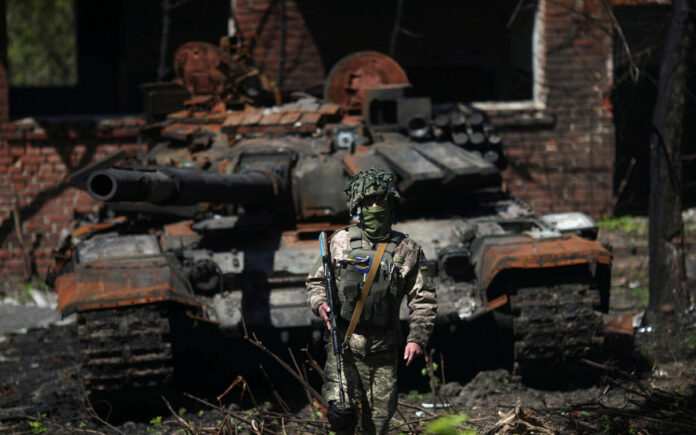Kyiv: War leaves lasting scars on soldiers, both physically and mentally. As conflicts drag on, morale weakens, and tensions escalate.
This appears to be the case within the Russian military after more than 1,000 days of war in Ukraine, with reports indicating rising frustration among troops and commanders. Some soldiers are disobeying orders, while others are resorting to more drastic actions, Ziare reports.
The Crimean partisan group ATESH has observed an increase in acts of defiance within Russian military ranks.
Commanders Resist Sending Troops into Heavy Losses
In several frontline areas, particularly in Kherson, commanders are refusing orders to send soldiers into deadly assaults. The reason is straightforward—many units have suffered such severe casualties that they lack reinforcements to replace the dead or wounded.
Some officers are even reportedly sabotaging their own equipment to avoid deployment in what they perceive as suicidal missions.
Rising Suicide Rates Among Russian Troops
At the same time, suicide rates among Russian soldiers appear to be climbing. While precise figures remain difficult to verify, Ukrainian officials report a troubling trend in occupied territories such as Luhansk and Donetsk.
Artem Lysohor, head of Ukraine’s Luhansk Regional Military Administration, stated that in 2024 alone, a Russian soldier has taken his own life every two days in occupied Luhansk.
Mistreatment by commanders plays a significant role in the crisis. Reports suggest that Russian officers rely on threats, violence, and relentless psychological pressure to control their troops. Some soldiers are forced to remain in exposed pits at their posts all day, leading to severe mental distress.
ATESH reported that an investigation had been launched into suicides within the 1196th Motorized Regiment in Kherson, indicating that even Russian authorities can no longer ignore the issue.
Desertions on the Rise Despite Harsh Punishments
Desertions are also reportedly increasing, though escaping the battlefield is nearly impossible. Last spring, more than 1,000 soldiers from the 20th Division were said to have fled.
In response, Russian forces have enforced strict measures to prevent defection. Soldiers caught attempting to escape face severe consequences.
Some deserters are locked in underground cells for “educational conversations” conducted by special services. Others are executed on the spot by “barrier troops” stationed behind the front lines to prevent retreat.
Also Read | Hezbollah Chief Sets February 18 Deadline for Full Israeli Withdrawal from Lebanon
Russian Troops Trapped in Occupied Ukraine
The movement of soldiers within occupied Ukraine is tightly controlled. A Ukrainian intelligence officer explained that Russian checkpoints monitor all activity in the region.
Once deployed, Russian soldiers are effectively trapped in their assigned areas, with little hope of escape.
An Army Under Strain
The situation within the Russian military is worsening. As losses mount and morale erodes, internal fractures are becoming more evident.
Rebellion, suicides, and desertions signal an army struggling to maintain cohesion. The question remains—how much longer can it endure?



